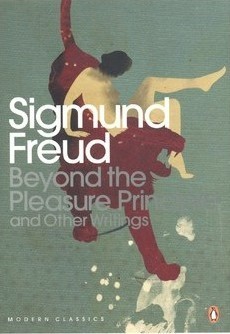What do you think?
Rate this book


320 pages, Paperback
First published January 1, 1920


What now follows is speculation, often quite extravagant speculation, which readers will regard or disregard according to their own particular standpoint. For the rest, it is an attempt to follow an idea right through to its logical conclusion, undertaken out of sheer curiosity as to where this will lead. —Beyond the Pleasure Principle
__________
We love one or other of the following:
1) Narcissistic Type:
⠀⠀⠀⠀a) What we ourselves are
⠀⠀⠀⠀b) What we ourselves were
⠀⠀⠀⠀c) What we would like to become
⠀⠀⠀⠀d) A person who was once part of our own self
2) Imitative Type:
⠀⠀⠀⠀a) The woman who feeds us
⠀⠀⠀⠀b) The man who protects us
⠀⠀⠀⠀And the many surrogates who take their place..
—On the Introduction of Narcissism
Let us go back for a moment and ask whether all these speculations are not perhaps entirely baseless.
Our views have from the very first been dualistic, and to-day they are even more definitely dualistic than before--now that we describe the opposition as being, not between ego instincts and sexual instincts but between life instincts and death instincts.
The pleasure principle seems actively to serve the death instincts.